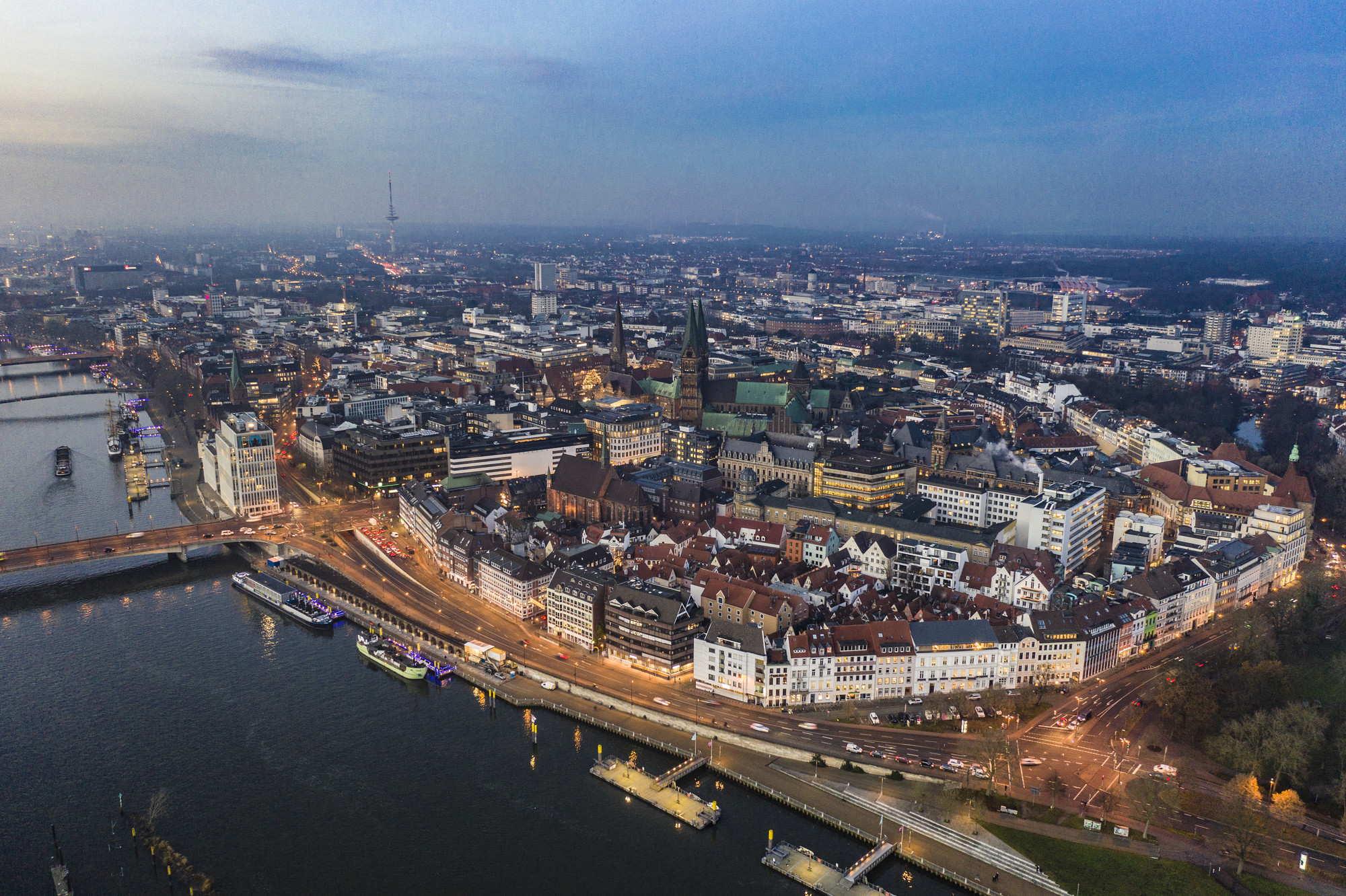Regional elections litmus test for German govt after months of climate policy discord
Germany’s ruling coalition has been wrangling over crucial climate policy proposals for months and a regional election this weekend is set to show the extent to which public approval has taken a hit.
Chancellor Olaf Scholz’s approval ratings have been downward trending since a peak in the immediate aftermath of Russia's invasion of Ukraine. The Green Party is under pressure over the proposal for a de facto ban on new oil and gas heaters and a contentious personnel decision within the economy and climate action ministry. And the third coalition partner, the pro-business FDP, fared badly in several recent state elections and is eager to assert itself within the government. The party has called into question several of the coalition’s climate policy projects, such as the ban on combustion engine cars at EU level or the heating agreement.
Voters in the city-state of Bremen will head to the polls on 14 May to elect a new parliament. The election outcome will decide which parties could enter government coalition talks and decide the city’s energy and climate policy for the coming years. It will also have an impact on federal policy due to Bremen's seats in the Bundesrat, Germany’s upper house of parliament representing its 16 states. Regional elections are often decided based on regional issues. In a recent poll conducted in Bremen by public broadcaster ZDF, only 12 percent of respondents identified climate action as the most important issue in the city-state, while 46 percent named education policy and 28 percent transport policy. However, national politics and fighting over policy often make a crucial difference also at the state level, especially in tight elections.
Bremen’s governments have been led by an SPD mayor for decades, with the party’s Andreas Bovenschulte running for re-election in May. He is popular among voters and has governed since 2019 in a coalition with the Greens and the Left Party, which according to political analysts has a good chance of being renewed after the election. Polls show the SPD and the conservative Christian Democrats (CDU) in a neck-and-neck race. Public broadcaster ARD showed the Social Democrats in the lead with 30 percent, followed by the CDU with 27 percent. The FDP could struggle to surpass the 5 percent threshold to enter parliament. The Green Party has suffered the greatest losses in popularity since an earlier poll in mid-April, dropping four percentage points to 13 percent.
This could in part be due to the party’s troubles at the national level. The Greens have come under fire in recent weeks due to a controversial heating transition law from economy and climate action minister Robert Habeck. The row over plans for a de facto ban on oil and gas heaters from 2024 has shown an increasing polarisation of the public over the transition to climate neutrality. The image of a “party of bans” – which had clung to the Greens for years but it had hoped to have overcome – is back.
Habeck is also under pressure from the media and the opposition after his state secretary, Patrick Graichen, failed to disclose early in the process that the ministry's appointee to head the government-owned German Energy Agency (dena) was his best man at his wedding. Graichen was part of the selection committee for the post. In a parliamentary committee hearing, Habeck came out in support of his state secretary. “Of course, it is legitimate to ask whether the mistake is so serious that I have to dismiss state secretary Graichen. And, of course, I asked myself this question. I have answered it in the negative,” he told MPs, according to a written statement.
“In the short term, it will be difficult to get out of this slump,” researcher Wolfgang Schroeder of the Berlin Social Science Centre told Süddeutsche Zeitung. Schroeder said distancing themselves from climate activists with more drastic actions, like those from the group "Last Generation," could help the Greens. The group has angered large parts of the population when its activists glued themselves to streets or threw paint at artworks. The Greens “might lose a few activists that way,” Schroeder said, “but they could build up or win back trust in the middle” of society.
At an election campaign event in the northern city-state, federal finance minister Christian Lindner from the Free Democrats (FDP) criticised the incumbent government of Bremen, which includes Lindner’s federal government coalition partners, the SPD and the Green Party, for “declaring climate change a general crisis for the next years and decades to bypass the debt brake,” according to a dpa (news agency) report published in Die Welt.
The government of the highly indebted city-state has recently agreed on a 2.5-billion-euro package for a climate-friendly transformation of the state’s economy, which is dependent on a loan that federal minister Lindner must approve. Lindner, who has been critical of taking on debt to finance climate action at the federal level, said the prospect of bypassing the debt brake, a national cap on borrowing, “worries me greatly,” adding that “interest rates don’t care why the debt has been taken on.”
After the election in city state Bremen, domestic politics in Germany is likely to be dominated by two other state elections at the end of the year, when both Hesse and Bavaria head to the polls. The elections in the two much larger and wealthier states in southern Germany are scheduled to take place simultaneously on 8 October.

